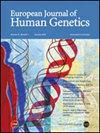Exome sequencing reveals broad genetic heterogeneity for neuromuscular disorders in consanguineous Pakistani Families
IF 4.6
2区 生物学
Q2 BIOCHEMISTRY & MOLECULAR BIOLOGY
引用次数: 0
Abstract
Neuromuscular disorders comprise the majority of neurogenetic conditions, generally characterized by overlapping clinical symptoms, such as spastic paraplegia, muscular abnormalities, and ataxia. In low- and middle-income countries (LMICs), many patients remain undiagnosed or are misdiagnosed. For many NMDs, early diagnosis helps reduce the impact and mortality of the disorder, particularly in LMICs such as Pakistan, and reduces the burden on the healthcare system. The aim of this study was to use exome sequencing as a first line of diagnostic approach to identify the cause of disease. Here, we present five consanguineous families from different remote villages in Pakistan with an undiagnosed neuromuscular disorder, in whom whole-exome sequencing was able to provide a diagnosis. We identified novel variants in known reported disease genes SPEN (c.351_356del) and POMT1 (c.1583A > G) and three previously reported variants in MMP2 (c.1287del), ARL13B (c.599 G > A), and SPG11 (c.6811_6812del). In one family, homozygous pathogenic variants in two different genes (SPEN and NPHP4) were identified; to our knowledge, this is the first report of nephronophthisis and Radio-Tartaglia syndrome co- segregating in a family. In all cases, Sanger sequencing was performed on available family members to confirm segregation. Our study highlights the importance of whole-exome sequencing as a first-line diagnostic approach in undiagnosed individuals with neuromuscular disorders in LMICs, where access to healthcare is limited.

外显子组测序揭示了巴基斯坦近亲家庭中神经肌肉疾病的广泛遗传异质性。
神经肌肉疾病包括大多数神经遗传疾病,通常以重叠的临床症状为特征,如痉挛性截瘫、肌肉异常和共济失调。在低收入和中等收入国家,许多患者仍未得到诊断或被误诊。对于许多非传染性疾病,早期诊断有助于减少该病的影响和死亡率,特别是在巴基斯坦等中低收入国家,并减轻卫生保健系统的负担。这项研究的目的是使用外显子组测序作为一线诊断方法,以确定疾病的原因。在这里,我们介绍了来自巴基斯坦不同偏远村庄的五个近亲家庭,他们患有未确诊的神经肌肉疾病,全外显子组测序能够提供诊断。我们在已知报道的疾病基因SPEN (c.351_356del)和POMT1 (c.1583A b> G)中发现了新的变异,并在MMP2 (c.1287del)、ARL13B (c.599 G b> A)和SPG11 (c.6811_6812del)中发现了三个先前报道的变异。在一个家族中,发现了两个不同基因(SPEN和NPHP4)的纯合致病变异;据我们所知,这是首例肾性肾病和Radio-Tartaglia综合征在一个家庭中共同分离的报道。在所有病例中,对可用的家庭成员进行Sanger测序以确认分离。我们的研究强调了全外显子组测序作为低收入国家未确诊的神经肌肉疾病患者的一线诊断方法的重要性,这些国家获得医疗保健的机会有限。
本文章由计算机程序翻译,如有差异,请以英文原文为准。
求助全文
约1分钟内获得全文
求助全文
来源期刊

European Journal of Human Genetics
生物-生化与分子生物学
CiteScore
9.90
自引率
5.80%
发文量
216
审稿时长
2 months
期刊介绍:
The European Journal of Human Genetics is the official journal of the European Society of Human Genetics, publishing high-quality, original research papers, short reports and reviews in the rapidly expanding field of human genetics and genomics. It covers molecular, clinical and cytogenetics, interfacing between advanced biomedical research and the clinician, and bridging the great diversity of facilities, resources and viewpoints in the genetics community.
Key areas include:
-Monogenic and multifactorial disorders
-Development and malformation
-Hereditary cancer
-Medical Genomics
-Gene mapping and functional studies
-Genotype-phenotype correlations
-Genetic variation and genome diversity
-Statistical and computational genetics
-Bioinformatics
-Advances in diagnostics
-Therapy and prevention
-Animal models
-Genetic services
-Community genetics
 求助内容:
求助内容: 应助结果提醒方式:
应助结果提醒方式:


